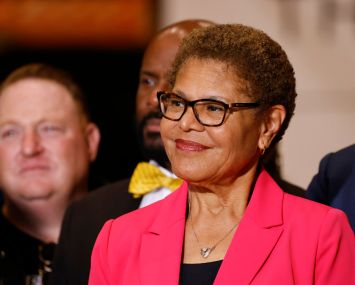Trump, DOGE Pause Millions in Funding for Affordable Housing Projects Over DEI
The cuts come after reviews of references to diversity, equity and inclusion among grant recipients’ websites and social media, reports say.
By Nick Trombola March 11, 2025 6:05 pm
reprints
It appears that no government contract is safe from the ax wielded by Elon Musk’s Department of Government Efficiency (DOGE), even if they’re aimed at funding affordable housing.
The Trump administration, with DOGE as a non-governmental consulting body, has paused at least $60 million in Department of Housing and Urban Development (HUD) grants used by hundreds of affordable housing projects across the country, according to reports from the Associated Press and Bloomberg.
The pauses reportedly stem largely from the administration’s aversion to diversity, equity and inclusion (DEI) programs. DOGE sent out notice of the terminations in February after it had conducted a review of organizations’ websites and LinkedIn pages for references to DEI, per Bloomberg, citing anonymous HUD sources. It is not immediately clear what specific language DOGE searched for.
“HUD is reviewing all contracts for efficiency and effectiveness to accomplish good government goals,” a HUD spokesperson told Commercial Observer. “Certain contracts were found not to accomplish HUD’s mission with economy, efficiency, and effectiveness. HUD is allowing appeals and the agency is currently working with grantees to communicate the appeals process. HUD plans to use its appropriation in a way that best serves the American people.”
Technical assistance contracts — including consulting, coordination and system solutions grants — with at least eight organizations have since been nixed, per Bloomberg. Contracts for two of the three organizations that oversee federal awards via the government’s Section 4 program meanwhile, which provides seed funding for community development groups, have also been paused.
Those two organizations are the Local Support Initiatives Corporation (LISC) and Enterprise Community Partners. The third group, Habitat for Humanity, has not yet received contract cuts, per Bloomberg, and did not immediately respond to a request for comment. It wasn’t immediately clear why Habitat for Humanity’s contracts were spared.
“Today’s decision will raise costs for families, hobble the creation of affordable homes, forfeit local jobs, and sap opportunity from thousands of communities in all 50 states,” Shaun Donovan, president and CEO of Enterprise, said in a statement. “We intend to pursue every avenue to ensure these vital programs are not torn away from the neighborhoods and working Americans who benefit from them.”
LISC received letters from HUD in late February notifying the corporation of technical assistance contract and Section 4 terminations, including funding for projects that had already been approved, according to an LISC spokesperson. Nearly $30 million of LISC federal contracts were cut, though the spokesperson added that the economic impact of those cuts was actually much higher, as private capital investments in projects usually follow federal dollars.
HUD also indicated to LISC that funds would continue to be disbursed through the programs, though in-house rather than via independent intermediaries like LISC or Habitat for Humanity. Yet the awards are required by law to be administered by intermediary groups, potentially setting the stage for a legal showdown as LISC and others review their options.
“[HUD’s] move violates congressional appropriations language, which mandates expert intermediaries manage Section 4 funds,” LISC said in a statement. “The Section 4 model was established specifically because HUD does not have the capacity or staffing resources to efficiently administer small grants and technical assistance programming to upwards of 1,000 community-based groups annually.”
President Trump on the first day of his second term signed an executive order titled “Ending Radical and Wasteful Government DEI Programs and Preferencing.” Charles Azell, acting director of the Office of Personnel and Management, was appointed to conduct reviews of “all existing federal employment practices, union contracts, and training policies or programs.”
HUD’s internal guidance for Section 4 calls for recipients of that program’s funding to “support underserved communities” and “advance housing justice.”
DEI programs and their influence in how the government operates have been in the president’s crosshairs for years, and have been the target of much of his administration’s widespread effort to downsize the federal system. Commercial Observer in February spoke with several attorneys to gauge what Trump’s DEI orders could mean for commercial real estate firms, particularly firms with federal contracts, and how they could be enforced.
Nick Trombola can be reached at ntrombola@commercialobserver.com.


